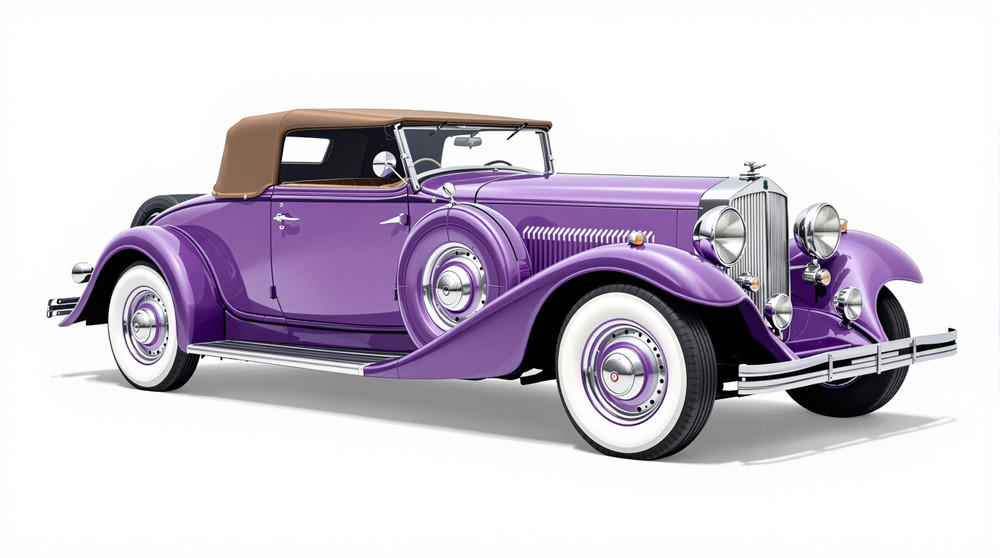Image of 1933 Duesenberg Model J, Note: These illustrations use artistic license and may differ from actual historical models.
Performance Metrics
Fundamental Metrics
Emotional Appeal
MMP Rating
| Engine Specifications | |
|---|---|
| Engine: | Straight-8 |
| Displacement: | 420 cu in (6.9 L) |
| Horsepower: | 265-320 HP |
| Torque: | Not available |
| Compression Ratio: | Not available |
| Ignition System: | Dual Ignition with two spark plugs per cylinder |
| Cooling System: | Water-cooled |
| Performance Specifications | |
| 0-60 Time: | Estimated 8-10 seconds |
| 1/4 Mile Time: | Not available |
| Top Speed: | 119 mph |
| Transmission and Drive | |
| Drive Type: | Rear-wheel drive |
| Transmission Type: | 3-speed manual |
| Fuel and Efficiency | |
| Fuel System Type: | Carburetor |
| MPG: | Not available |
| Dimensions and Brakes | |
| Brakes: | Hydraulic with vacuum assist |
| Wheelbase: | 142.5 in (3,620 mm) |
| Weight: | 5,200 lbs |
Note: Specifications for classic cars are given to the best of our ability, considering the limited and variant data available.
The Quintessence of Luxury: The 1933 Duesenberg Model J
The 1933 Duesenberg Model J stands as a paragon of pre-war American automotive excellence, a testament to the opulence and engineering prowess of its era. Birthed during the Roaring Twenties by the illustrious Duesenberg Automobile & Motors Company, Inc., this vehicle was conceived as a marvel of luxury and performance. Its historical significance is anchored not just in its mechanical achievements but also in its embodiment of the American Dream during a period of economic prosperity followed by the Great Depression. A unique fact that captivates enthusiasts is that despite the economic downturn, Duesenberg Model Js were owned by Hollywood stars, royalty, and the social elite, cementing their status in automotive lore.
Design and Innovation
The exterior styling of the 1933 Duesenberg Model J was nothing short of breathtaking. Its long, sweeping hood and elegant lines exuded a sense of grandeur and power. The interior was equally impressive, with lavish use of the finest leathers, rich wood trimmings, and luxurious carpeting that spoke to the no-expense-spared approach to its design. Technologically advanced for its time, it featured innovations such as a supercharged engine option and one of the earliest uses of hydraulic brakes on a passenger car. Color options ranged from stately blacks and deep blues to more vibrant hues that reflected individuality. Among various body styles, the most iconic was arguably the SJ LaGrande Dual-Cowl Phaeton, a true masterpiece of automotive art.
Historical Significance
The Duesenberg Model J's impact on automotive design was profound. It set new standards for power and luxury, with an engine capable of up to 265 horsepower when supercharged—a figure that dwarfed most contemporaries. Its lasting influence can be seen in subsequent luxury vehicles that sought to emulate its blend of performance and opulence.
Performance and Handling
On the road, the 1933 Duesenberg Model J was a force to be reckoned with. It boasted a top speed that could exceed 115 mph—a remarkable feat for its time—and could accelerate from 0-60 mph in around 10 seconds. Handling was surprisingly adept for such a large car, with a solid chassis and effective dampening providing stability over uneven surfaces. Driving this car was an auditory delight; the deep growl of its straight-eight engine was music to any gearhead's ears.
Ownership Experience
Though initially intended for the wealthiest clientele as an extravagant daily driver or show car, today's ownership experience is typically confined to well-heeled collectors or museum exhibits. Maintenance requires specialized knowledge due to its rarity and age, but reliability remains high among well-preserved examples.
Fun Facts
Among numerous trivia gems is that fewer than 500 units were produced during its run from 1929 to 1937. Celebrity owners included names like Clark Gable and Gary Cooper. While criticisms were few given its stature, some did note its hefty price tag during economically challenging times.
Collector's Information
Today's value range for a well-maintained or restored 1933 Duesenberg Model J can be astronomical, often fetching millions at auction due to their scarcity and historical significance. Price trends have generally seen an appreciation over time as these vehicles are considered blue-chip investments within the classic car market.
Conclusion
The 1933 Duesenberg Model J remains an enduring icon of American automotive history—a symbol of ambition and luxury. Its legacy continues to captivate collectors and enthusiasts alike, ensuring its place in the pantheon of classic cars for generations to come.
1933 Duesenberg Model J Catalog of Parts
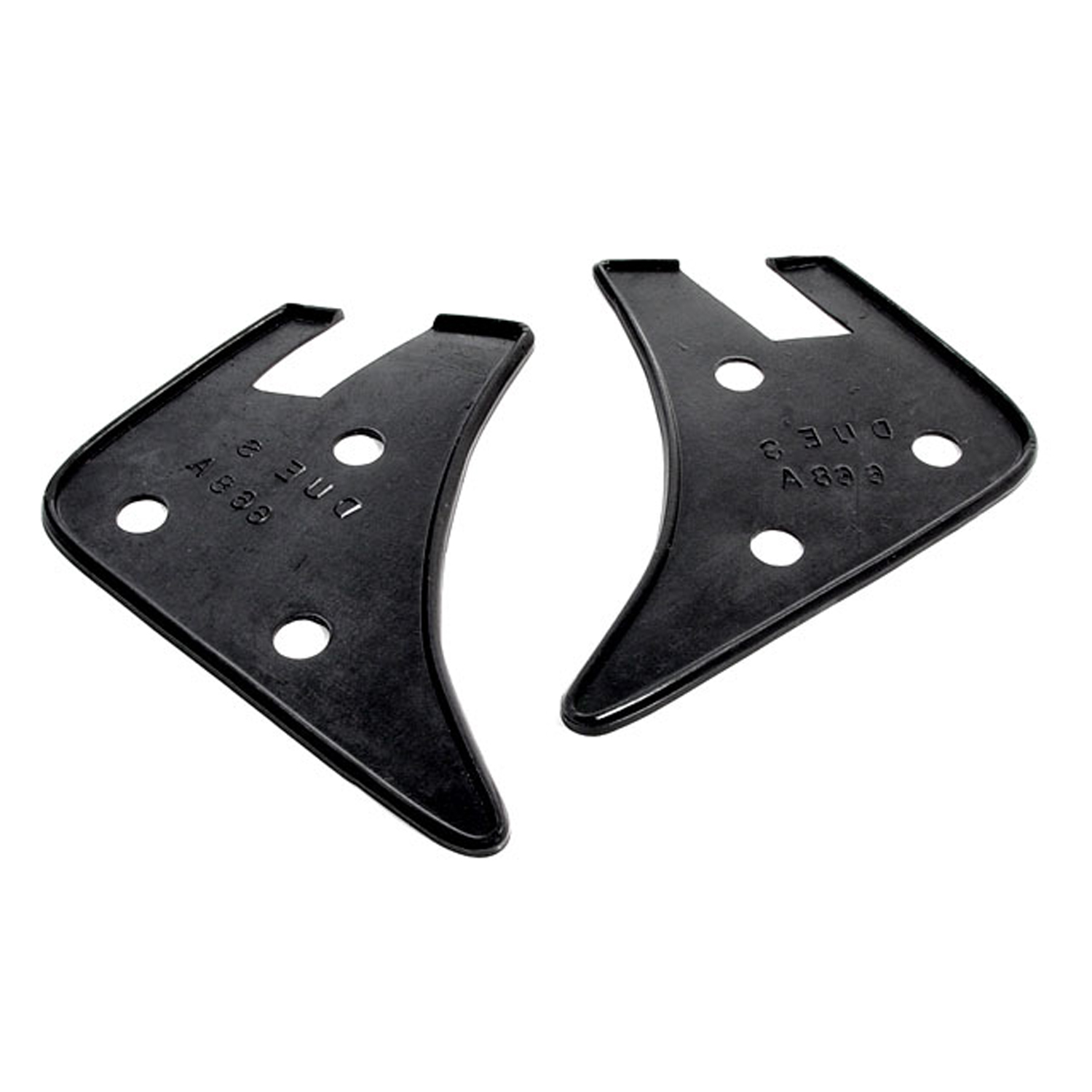 1933 Duesenberg Model J Front Windshield Post Pads. For LeBaron-MP 668-AFront Windshield Post Pads. For LeBaron. 3-1/4" wide X 5-1/2" long. Pair R&L
1933 Duesenberg Model J Front Windshield Post Pads. For LeBaron-MP 668-AFront Windshield Post Pads. For LeBaron. 3-1/4" wide X 5-1/2" long. Pair R&L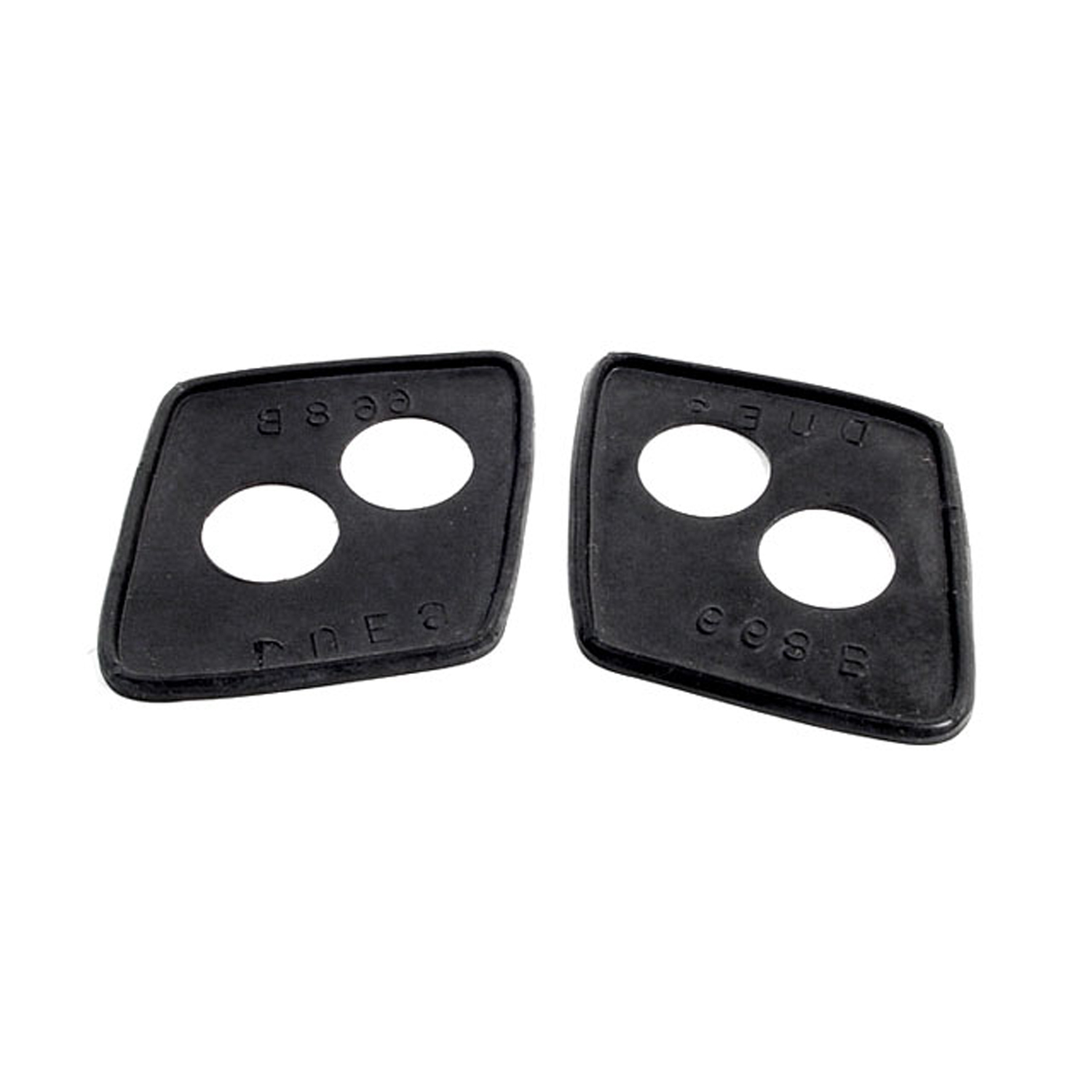 1933 Duesenberg Model J Rear Windshield Post Pads. For LeBaron-MP 668-BRear Windshield Post Pads. For LeBaron. 2-1/2" wide X 2-1/2" long. Pair R&L
1933 Duesenberg Model J Rear Windshield Post Pads. For LeBaron-MP 668-BRear Windshield Post Pads. For LeBaron. 2-1/2" wide X 2-1/2" long. Pair R&L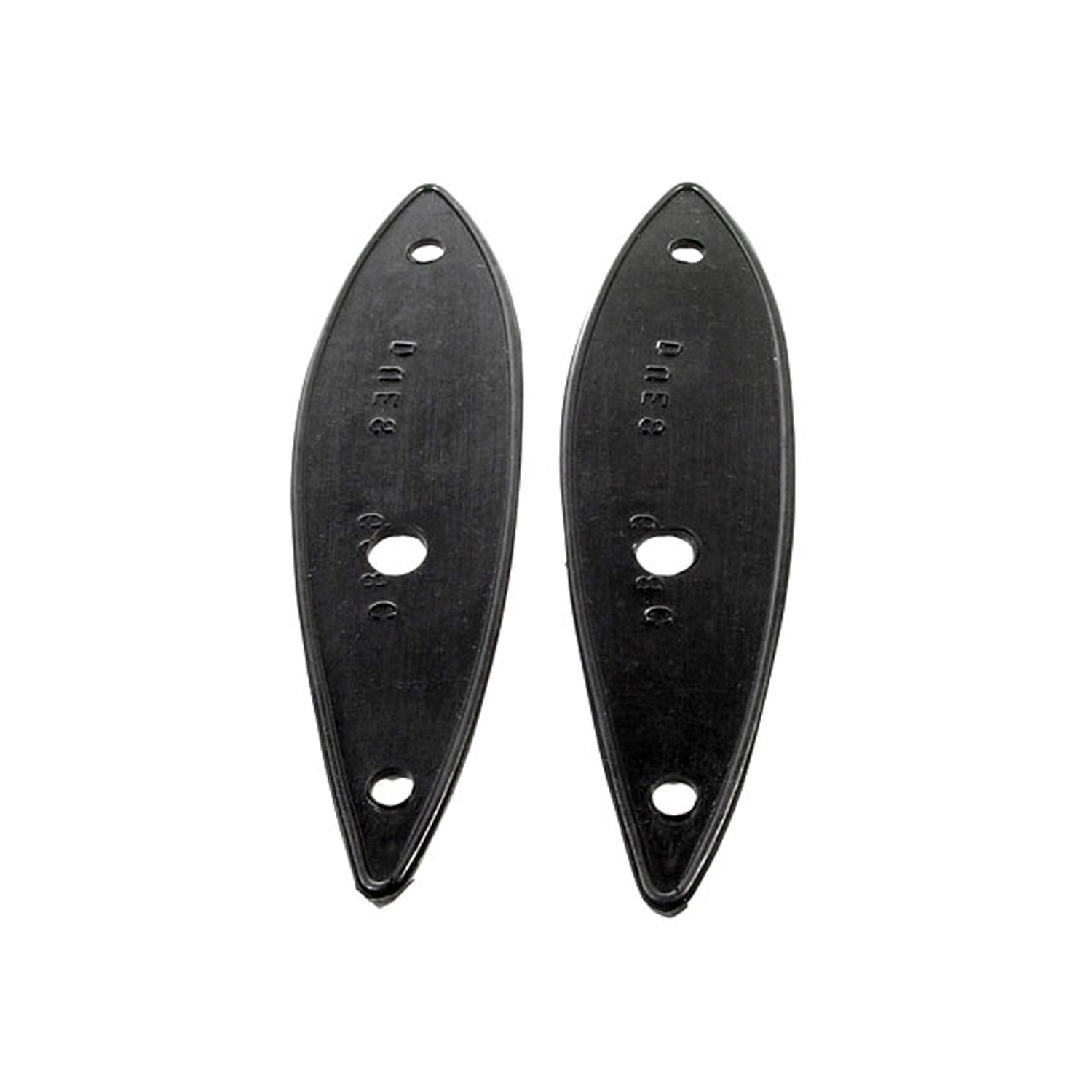 1933 Duesenberg Model J Tail-light Pads. 2" wide X 7-7/8" long. Pair-MP 668-CTail-light Pads. 2" wide X 7-7/8" long. Pair
1933 Duesenberg Model J Tail-light Pads. 2" wide X 7-7/8" long. Pair-MP 668-CTail-light Pads. 2" wide X 7-7/8" long. Pair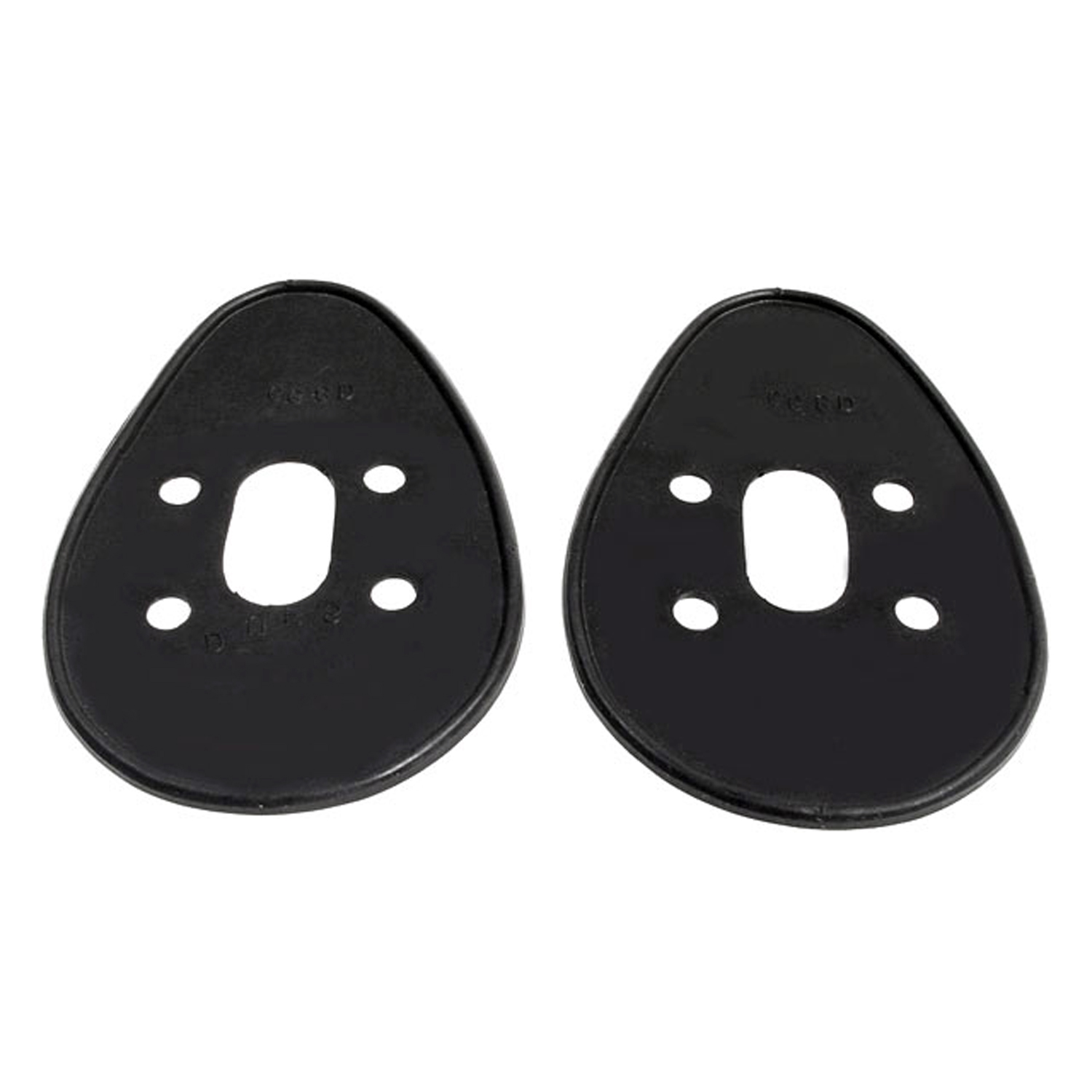 1933 Duesenberg Model J Headlight Pads. O.D.: 6-5/8" long x 4-1/8" wide, I.D-MP 668-DHeadlight Pads. O.D.: 6-5/8" long x 4-1/8" wide, I.D.: 1-3/4" X 15/16". Pair
1933 Duesenberg Model J Headlight Pads. O.D.: 6-5/8" long x 4-1/8" wide, I.D-MP 668-DHeadlight Pads. O.D.: 6-5/8" long x 4-1/8" wide, I.D.: 1-3/4" X 15/16". Pair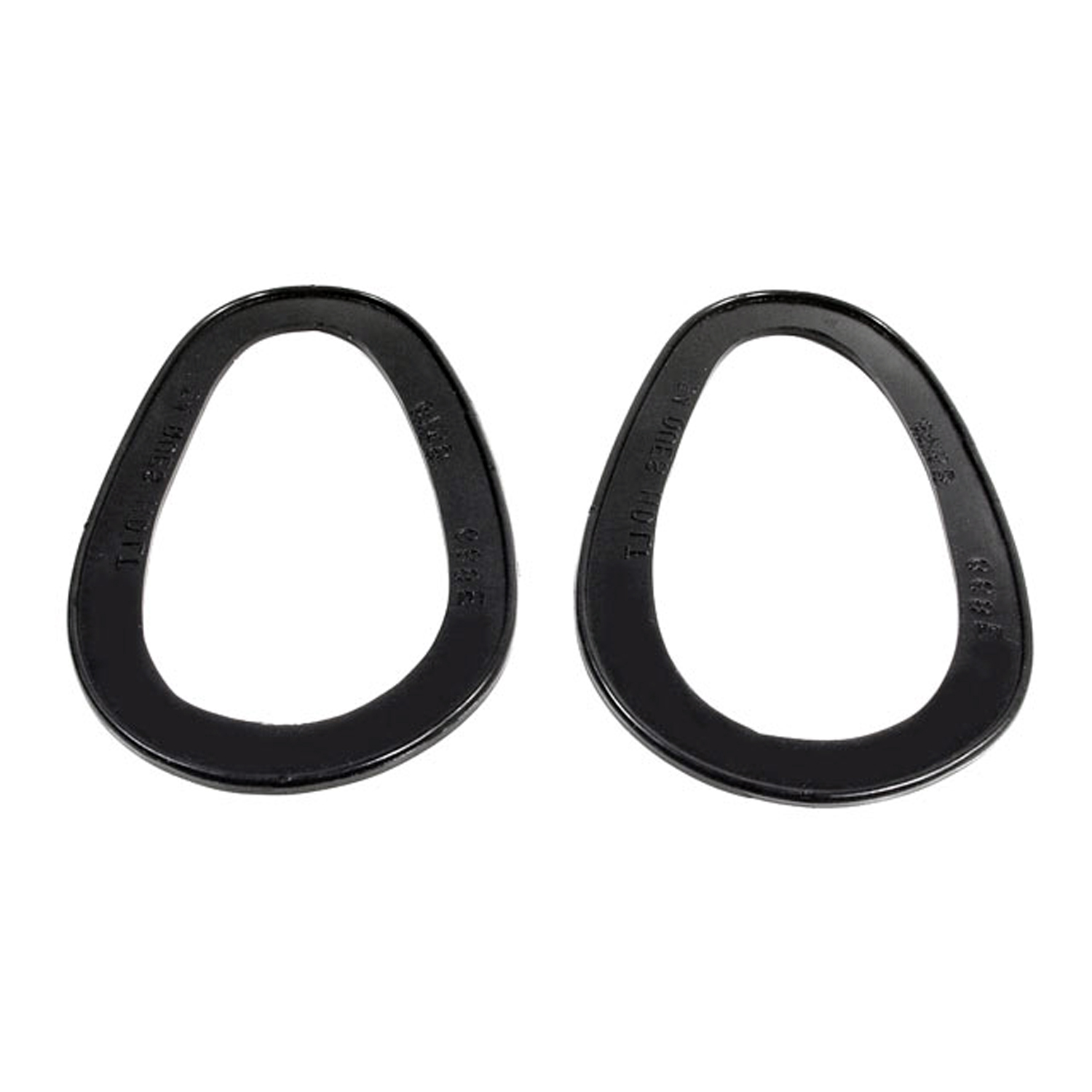 1933 Duesenberg Model J Headlight Pads. 4-1/2" wide X 6-1/2" long. Pair-MP 668-EHeadlight Pads. 4-1/2" wide X 6-1/2" long. Pair
1933 Duesenberg Model J Headlight Pads. 4-1/2" wide X 6-1/2" long. Pair-MP 668-EHeadlight Pads. 4-1/2" wide X 6-1/2" long. PairWhy Choose Metro?
For over 100 years, Metro Moulded Parts has been the pinnacle of quality in classic car restoration parts. Our commitment to precision and authenticity in every component ensures a perfect fit and an OEM-level appearance.
- Expert Craftsmanship & Quality: Each part is a testament to our dedication to reliability and perfection, crafted from original designs and thoroughly tested.
- Advanced Technology: We use cutting-edge techniques to create flawless, long-lasting parts that surpass others in performance.
- SuperSoft Sponge – The Ultimate Door Seal: Not only are our door seals 30% softer than competitors', but they're also guaranteed to never leak. They effectively reduce wind and road noise, enhancing your classic car's comfort and driving experience.
- Proudly American: Our parts are a product of American craftsmanship, made in the USA with a spirit of excellence and heritage.
- Unrivaled Warranty: We back our products with a 30-year industry-leading warranty, a testament to our confidence in their quality.
Join us in preserving the legacy of classic cars with parts that are crafted for perfection, not just made.

